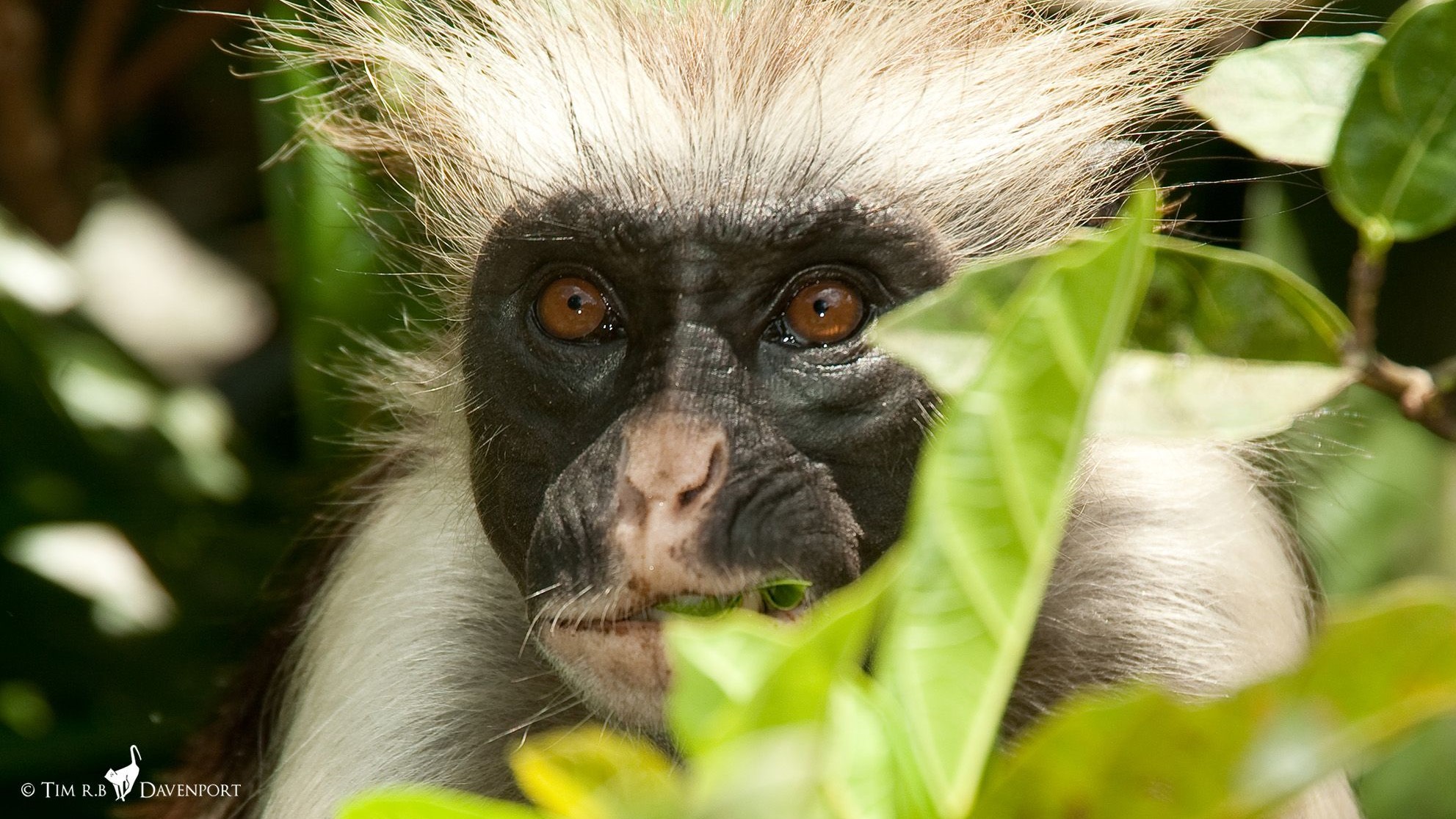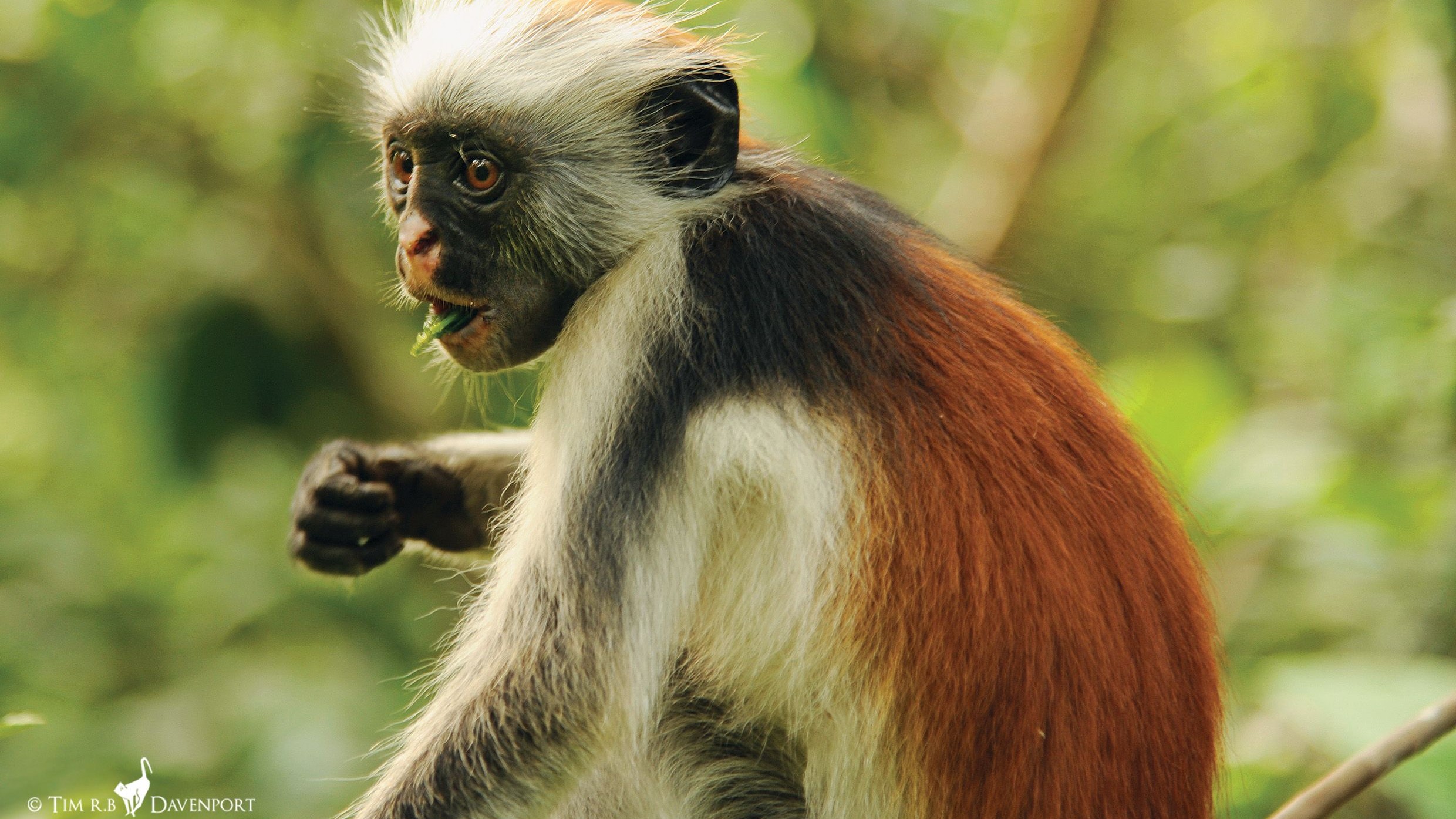These endangered monkeys kept getting hit by cars. Scientists had a clever solution.

Endangered primates that are frequently killed by cars while trying to cross the road in a national park in Zanzibar have been given a lifeline after speed bumps were put in to slow down traffic.
Zanzibar red colobuses (Piliocolobus kirkii) are small primates with a white coat, red back and black face. They are currently listed as an endangered species, with fewer than 6,000 mature individuals left in the wild, according to the International Union for Conservation of Nature (IUCN) Red List of endangered species. The species is endemic to Unguja — the largest island in the Zanzibar archipelago in the Indian Ocean — and most individuals now live within Jozani-Chwaka Bay National Park.
However, despite being a protected species within a safeguarded area, these small primates are still under threat from humans, scientists report in a new study. Red colobuses are frequently hit by cars as they try to cross the main road through the park. In response, local authorities added four speed bumps to the roads in the 1990s after pressure from the WildlifeConservation Society (WCS).
Related: 8 human-like behaviors of primates
"After the road at Jozani was surfaced but before the speedbumps were installed, a colobus was reported to have been killed every two to three weeks, resulting in perhaps about 12% to 17% annual mortality," lead author Harry Olgun, a doctoral student at Bangor University in the U.K., said in a statement.

Since the speed bumps were installed, the rate of collisions between cars and red colobuses has halved, according to the researchers. "The recent data show that speed bumps have made a huge difference for the safety of the colobus," Olgun said in the statement.
However, collisions with cars still remain a big risk.
Sign up for the Live Science daily newsletter now
Get the world’s most fascinating discoveries delivered straight to your inbox.
"Cars are not selective in the animals they kill," co-author Alexander Georgiev, a primatologist at Bangor University and director of the Zanzibar Red Colobus Project, said in the statement. In the wild, predators target the youngest and oldest individuals in the population, but cars are "equally likely to kill reproductively active young adults," which could stop the population from rebounding, Georgiev said.
However, the researchers still believe there is hope for these adorable primates.
"As tourism grows in Zanzibar and habitat continues to shrink, using science to quantify and solve conservation problems has never been so important," co-author Tim Davenport, director of species conservation and science in Africa at the Wildlife Conservation Society, said in the statement. "Understanding the impact of vehicles on wildlife within a park, and implementing practical solutions is exactly what we as conservationists should be doing.”
The study was published online March 16 in the journal Oryx.
Editor’s note: This article was updated to indicate that the speed bumps have been in place since the 1990s, and not recently placed as had been stated earlier.
Originally published on Live Science.

Harry is a U.K.-based senior staff writer at Live Science. He studied marine biology at the University of Exeter before training to become a journalist. He covers a wide range of topics including space exploration, planetary science, space weather, climate change, animal behavior and paleontology. His recent work on the solar maximum won "best space submission" at the 2024 Aerospace Media Awards and was shortlisted in the "top scoop" category at the NCTJ Awards for Excellence in 2023. He also writes Live Science's weekly Earth from space series.









